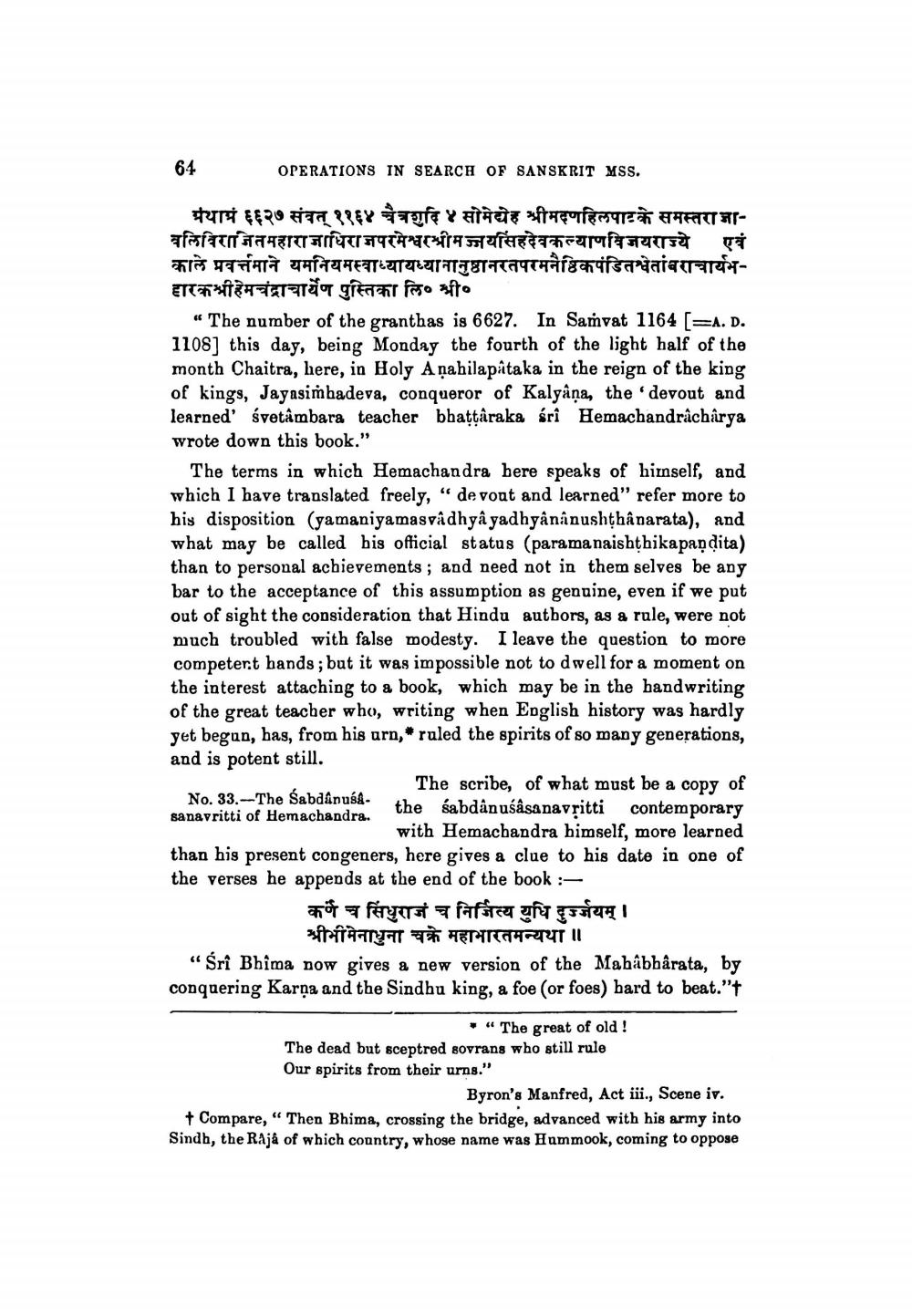________________
64
OPERATIONS IN SEARCH OF SANSKRIT MSS.
ग्रंथाग्रं ६६२७ संवत् १९६४ चैत्रशुदि ४ सोमेद्येह श्रीमदणहिलपाट के समस्तराजालिविजेत महाराजाधिराजपरमेश्वरश्रीमज्जयसिंहदेवकल्याणविजयराज्ये काले प्रवर्त्तमाने यमनियमस्वाध्यायध्यानानुष्ठानरतपरमनैष्ठिकपंडितश्वेतांबराचार्यभहारक श्री हेमचंद्राचार्येण पुस्तिका लि० श्री०
एवं
"The number of the granthas is 6627. In Samvat 1164 [=A. D. 1108] this day, being Monday the fourth of the light half of the month Chaitra, here, in Holy Anahilapâtaka in the reign of the king of kings, Jayasimhadeva, conqueror of Kalyana, the 'devout and learned' śvetâmbara teacher bhaṭṭâraka śrî Hemachandracharya wrote down this book."
The terms in which Hemachandra bere speaks of himself, and which I have translated freely, "devout and learned" refer more to his disposition (yamaniyamas vadhyâ yadhyânânushṭhânarata), and what may be called his official status (paramanaishthika pandita) than to personal achievements; and need not in them selves be any bar to the acceptance of this assumption as genuine, even if we put out of sight the consideration that Hindu authors, as a rule, were not much troubled with false modesty. I leave the question to more competer.t hands; but it was impossible not to dwell for a moment on the interest attaching to a book, which may be in the handwriting of the great teacher who, writing when English history was hardly yet begun, has, from his urn,* ruled the spirits of so many generations, and is potent still.
The scribe, of what must be a copy of the sabdânusâsanavṛitti
contemporary with Hemachandra himself, more learned than his present congeners, here gives a clue to his date in one of the verses he appends at the end of the book :
No. 33. The Śabdânussanavritti of Hemachandra.
कर्णे च सिंधुराजं च निर्जित्य युधि दुर्जयम् । नाना चक्रे महाभारतमन्यथा ॥
"Śrî Bhima now gives a new version of the Mahabharata, by conquering Karna and the Sindhu king, a foe (or foes) hard to beat."t
"The great of old! The dead but sceptred sovrans who still rule Our spirits from their urns."
Byron's Manfred, Act iii., Scene iv.
+ Compare," Then Bhima, crossing the bridge, advanced with his army into Sindh, the Raja of which country, whose name was Hummook, coming to oppose




